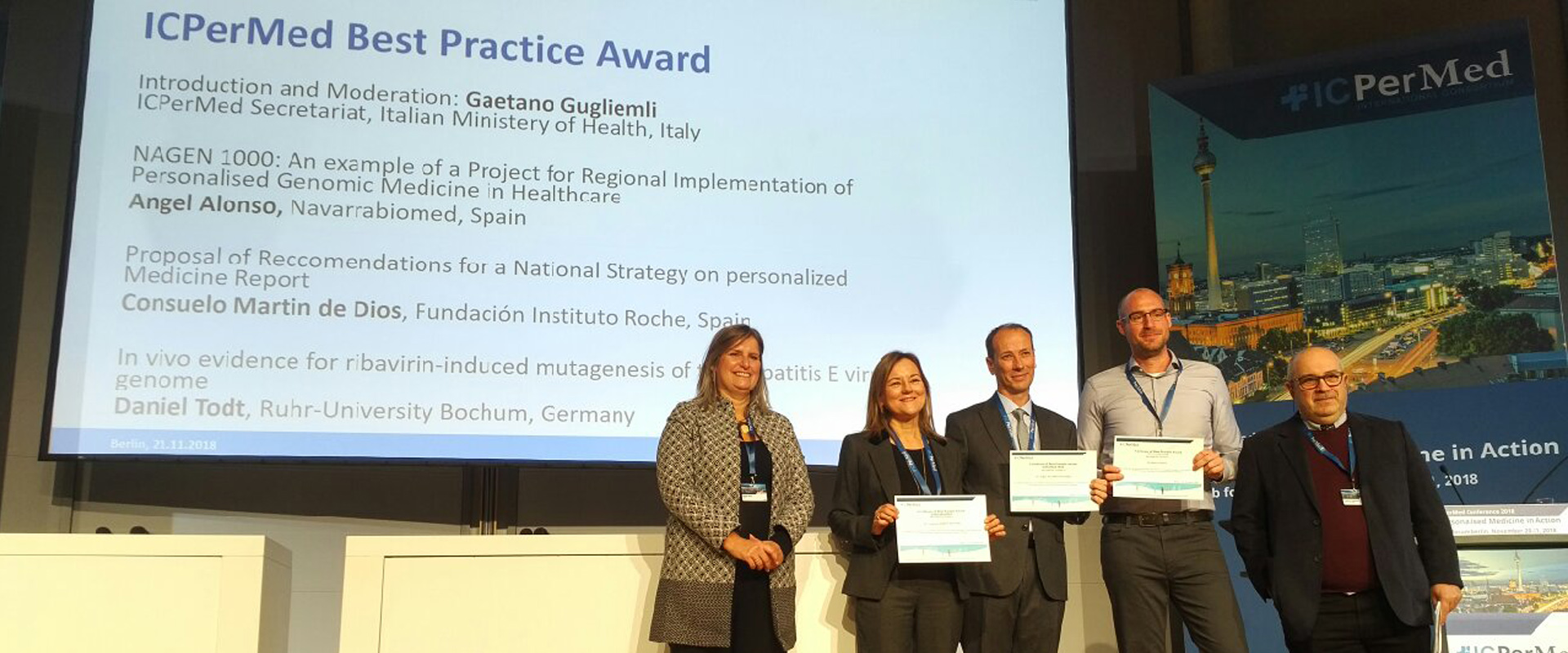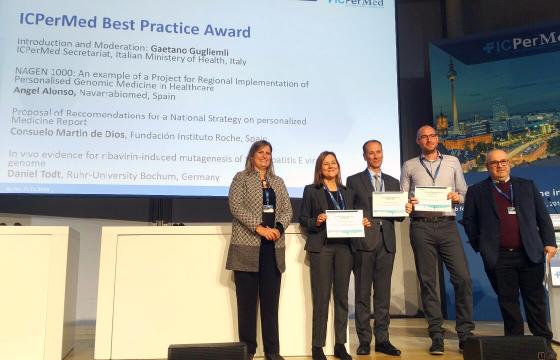
Led by Navarrabiomed, project NAGEN 1000 gets recognition among best international personalised medicine practices
The International Consortium for Personalised Medicine (ICPerMed) has granted NAGEN: Navarra Genome 1000 the Best Practice in Personalised Medicine 2018 Award. Ángel Alonso of the Genetics Unit at the Navarra Hospital Complex (CHN), who is also a researcher at Navarrabiomed and coordinator of NAGEN 1000, attended the first conference organised by ICPerMed in Berlin, where he received the international prize.
NAGEN 1000 was granted 2,984,000 Euro, allocated in the 2017, 2018 and 2019 budgets within the framework of the call for grants to R&D Strategic Projects 2017-2019 by the Directorate-General for Industry, Energy and Innovation, Economic Development Department, in accordance with the Intelligent Specialisation Strategy S3. NAGEN 1000 falls within the Genomics and Advanced Medicine category.
A pioneering project
The goal of NAGEN 1000 is to transfer the whole human genome analysis technology to Navarra’s public health system as a unique clinical and research tool for the development of personalised/precision medicine. To this end, a thousand genomes of patients with rare diseases and certain types of cancer in the Navarra Health System-Osasunbidea (SNS-O) and of their relatives are being analysed so as to apply molecular diagnostics, that is, to identify the genetic variants associated with diseases.
NAGEN 1000 is being developed by nearly fifty professionals from CHN, Nasertic, Avantia and Navarrabiomed. Other institutions bring support to the consortium: the Centro Nacional de Análisis Genómico (CNAG-CRG), the Clinical Bioinformatics Research Area of Fundación Progreso y Salud (AIBC-FPS), reporting to the Regional Government of Andalusia, and Genomics England Ltd (GEL), the company that coordinated the 100,000 Genomics Projects in the UK.
18 candidates from six different countries
There were 18 shortlisted candidates to the prize, which is given every year to the best practice in personalised medicine. As many as 61 researchers were involved in the shortlisted projects, based in six different countries – Italy, Luxembourg, Netherlands, Germany, Switzerland and Spain. The proposals were evaluated by seven researchers with broad experience in the implementation of personalised medicine.
At the Berlin ICPerMed Conference, other two good practices were given recognition as well: a proposal of recommendations for a national personalised medicine strategy, submitted by Fundación Instituto Roche in Spain, and a German project to transfer research results to personalised medicine in infectious diseases, submitted by Ruhr-Universität Bochum.
ICPerMed has more than 30 international members, mainly from Europe, and is funded by the European Commission. Its primary goal is to foster research and provide a framework for cooperation between member organisations for the development and implementation of personalised medicine.



